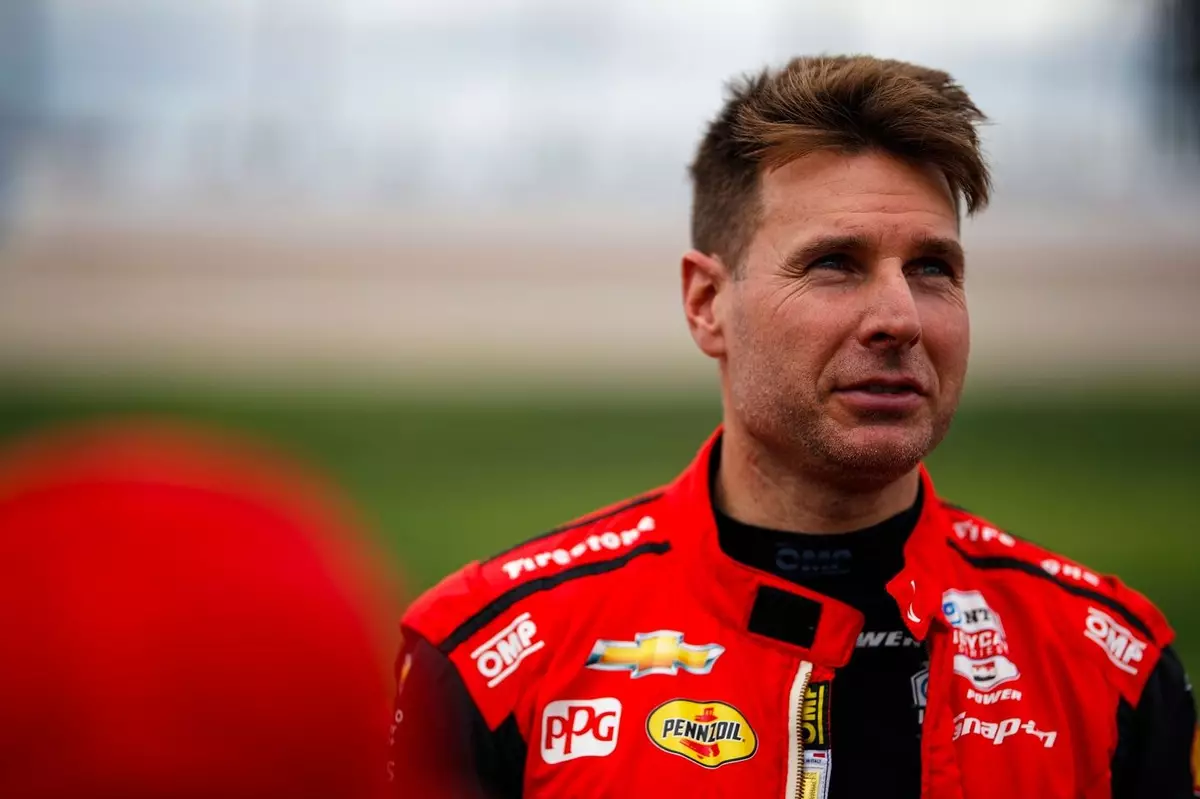As the IndyCar Series gears up for the new season, two-time champion Will Power has raised significant concerns regarding the current testing regulations imposed by the American open-wheel championship. Power, whose illustrious career includes championships in 2014 and 2022, emphasizes that the limitations on testing—having only one day to prepare for the upcoming season—are too restrictive. This sentiment is not a mere grievance but reflects a deeper understanding of how such constraints impact driver preparation and overall competitiveness in the series.
The need for thorough preparation cannot be overstated in a sport where milliseconds often determine winners. Power’s assertion that the IndyCar Series has heavily curtailed testing compares starkly to previous seasons, such as 2024, during which he engaged in extensive testing, particularly in anticipation of the introduction of hybrid power units. His experience underscores the importance of in-depth preparations in racing, which extend beyond physical fitness to intricate vehicle handling and fine-tuning.
Power’s reflections lead to a critical evaluation of the tools available to modern drivers. While simulators are acknowledged as valuable assets for preparation, Power is candid about their limitations in replicating the true racing experience. The fact that drivers have to rely more heavily on simulations underscores a fundamental gap; despite their investment in high-tech equipment, nothing can replace the knowledge gained through actual track time.
The challenge lies in finding a balance; while the current framework exists to keep costs manageable and ensure a level playing field, it inadvertently compromises the preparation opportunities essential for driver performance. As Power points out, a few additional days of testing could vastly improve drivers’ readiness, enhancing the quality of the races themselves.
In light of these testing restrictions, Power remains optimistic about his team’s capabilities. With his tenure at Team Penske dating back to 2009, Power asserts that there is “no better team” in the series, reflecting confidence in both his crew and the engineering resources available to them. Despite entering the final year of his contract, he emphasizes that consistent strong performances—including his achievements in the previous season—serve as compelling justification for contract renewal.
Power’s perspective that strong results serve as the best defense for retaining a seat in the competitive IndyCar scene aligns with the essence of sports: performance speaks volumes. Holding onto the belief that if a driver is consistently winning races in such a competitive series, they have earned their place amplifies the notion of meritocracy in racing.
However, Power’s ambitions extend beyond IndyCar. With dreams of competing in the prestigious 24 Hours of Le Mans, he connects his aspirations to his collaboration with notable figures in the racing world. Joining forces with Fernando Alonso’s management agency is a strategic move, opening doors for future opportunities in endurance racing.
The allure of the Le Mans race—an iconic event that tests the endurance of both driver and machine—aligns with Power’s desire to further expand his racing legacy. Having already conquered the Indy 500, the pursuit of a Le Mans victory represents another layer to his racing narrative. His remarks about Alonso’s extensive European contacts indicate an understanding of the importance of networking and strategy in professional sports.
As the IndyCar Series navigates the inevitable challenges of maintaining competitive integrity and ensuring driver preparedness, figures like Will Power play a crucial role in advocating for change. With his insights on testing limitations, simulator comparisons, and avenues for future racing endeavors, Power embodies the evolving landscape of motorsports where tradition meets modernity. His continued quest for excellence serves not only as inspiration but also as a catalyst for conversations about the future of racing in the United States and beyond. The path to change may be gradual, but with voices like Power’s leading the charge, the potential for a more robust and competitive racing environment remains bright.


Leave a Reply